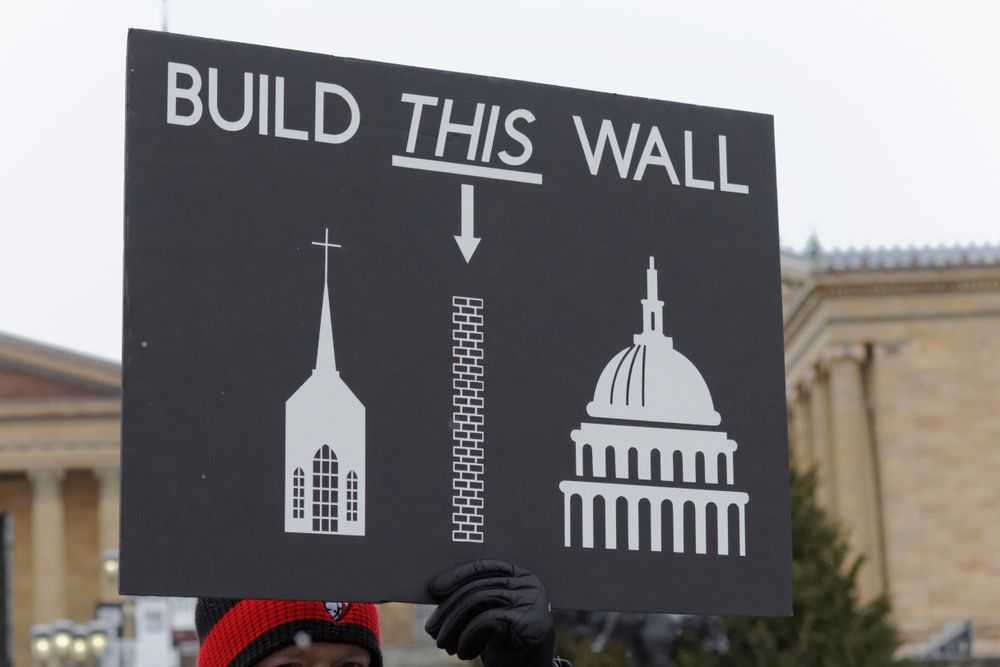Home>Does religion determine the place of law or does law define the place of religion?

23.09.2021
Does religion determine the place of law or does law define the place of religion?
Interview with Winnifred Sullivan
A Professor of Law and of Religious studies at Indiana University Bloomington, Winnifred Sullivan has joined the CERI as a visiting scholar for the fall 2021, with the Chair for the study of religion. She has agreed to answer our questions and present her work and ongoing research on the ambiguous relation between the church and the law in the United States. Interview.
Can you briefly present to us your research trajectory? How have you come to be interested in the relation between law and religion?
I began my post-graduate career as a lawyer—a corporate litigator. After some years in practice, I decided to return to university to obtain a PhD in religion. I had long been interested in religion and I had become increasingly interested in the ways in which US law seemed to lack a language in which to give an accurate account of religion. I noticed this first in the judicial opinions of the US Supreme Court but over the last couple of decades I have expanded my interest beyond the US Supreme Court to other sources of law and to contexts beyond the contemporary US. The success of my second book, The Impossibility of Religious Freedom, gave me the opportunity to learn from and collaborate with scholars working outside the United States. That experience has enriched my understanding of the US case.
Through your research on the US church, you have coined the concept of “church in law”. Would you mind explaining it in a few words?
The US Constitution uses the word religion, not church, but I have come to believe, with others, that that general word conceals certain Christian assumptions about the nature of religion embedded in the jurisprudence, in particular that of the nature of the religious collective. It is my view that the figure of the church as a transhistorical—even transcendental—entity lives in US law and has effects on the way religion is legally managed, even while law pretends to be universal and even-handed among religions. I use the expression “church-in-law” to distinguish legal meanings of the word church from theological and sociological ones and to underline its force in law, although the three uses influence each other, of course.
In a recent blog post, you write that while there may be many religions in the United States, there is only one that is really present in American law. Would you mind giving us an example of how this is tangible?
There are many many ways in which Christians and Christian churches are privileged in US law, and have been since the beginning. One recent example would be the specific exemptions provided to them in the Affordable Care Act (otherwise known as Obamacare). These exemptions permit certain Christian church employers to refuse insurance coverage for contraception. Another example would be the ministerial exception which allows churches constitutionally to discriminate in employment decisions in ways which would be illegal for secular employers.
Church and state are separated in most countries today. While there is a separation in the United States, it appears contradictory to have US Presidents referring to God and religion in their official statements, etc, at least from a secular point of view. How do Americans understand this contradiction?
Separation of church and state is, in a way, a modern myth, not an accomplished fact. In all countries there is an entanglement, not a separation, between government and religion but the details vary from country to country. I am teaching a course at Sciences Po this fall on “Church and State in the Americas.” My students are French, German and Brazilian. We are having a fascinating time comparing countries! The students are very smart but most do tend to assume a French version of separation. As for America, while US presidents refer to God quite regularly, that is not considered a violation of the constitutional guarantee against establishment of religion by most Americans because their rhetoric is understood to be non-coercive and at a level of generality largely ceremonial. When we look to France, we see that France has a law separating church and state and yet the French government maintains worship spaces built before 1905. That is shocking to Americans. Americans believe that religious organizations should not be materially supported by the government but should rely on voluntary donations. I think Americans and Europeans largely misunderstand each other’s church-state arrangements! They are each both secular and religious, but in different ways.
Visit Winnifred Sullivan's webpage & list of publications
Listen to Winnifred Sullivan's interview on On the Media
Read a recent blog article by Winnifred Sullivan, "The American Bishops"
Access the Chair's page
Interview by Miriam Périer, CERI.
Cover image caption: Philadelphia, USA, January 2020. (credits: Jana Shea for Shutterstock)
Follow us
Contact us
Media Contact
Coralie Meyer
Phone : +33 (0)1 58 71 70 85
coralie.meyer@sciencespo.fr
Corinne Deloy
Phone : +33 (0)1 58 71 70 68
corinne.deloy@sciencespo.fr
